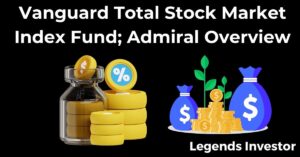Understanding the Importance of Staying Informed in the Stock Market
The stock market is a dynamic ecosystem where staying informed is key to making sound investment decisions. Informed investors can navigate market complexities, reduce risks, and seize profitable opportunities. This article explores the importance of staying informed and provides actionable insights to help investors keep up with the ever-changing financial landscape.
The Correlation Between Informed Decision-Making and Successful Investing
Knowledge is power, especially in the stock market. Successful investing depends on a thorough understanding of market trends, economic indicators, and company-specific news.
- Informed Decisions: Access to accurate and timely information allows investors to evaluate potential risks and rewards, leading to smarter investment choices.
- Anticipating Trends: Staying updated on emerging technologies or shifting consumer behaviors can help investors identify sectors with high growth potential.
- Long-Term Success: Consistently informed decision-making fosters better portfolio management and enhances long-term returns.
Risk Management Through Ongoing Education
Market volatility is inevitable, but informed investors can mitigate risks by:
- Understanding market cycles and reacting appropriately.
- Diversifying portfolios based on current trends.
- Utilizing risk management strategies tailored to market conditions.
Impact of Market News on Investor Psychology and Behavior
News has a profound impact on investor behavior:
- Positive News: Encourages bullish sentiment, often leading to price rallies.
- Negative News: Triggers fear and selling pressure, causing market dips.
- Media Influence: Overreaction to sensationalized headlines can lead to irrational decisions, emphasizing the need for balanced judgment.
Tools of the Trade: Essential Resources for Market News
Reliable tools and resources are vital for staying informed. The following are some of the best ways to keep up with market developments:
Establishing a Routine with Reliable Financial News Outlets
Start your day by reviewing updates from trusted sources such as:
- Bloomberg: For real-time financial news and analysis.
- The Wall Street Journal: Comprehensive coverage of business and economic trends.
- CNBC: A blend of market insights and live updates.
Mobile Apps and Alerts for Real-Time Updates
Apps like Yahoo Finance, MarketWatch, and Investing.com offer:
- Customizable alerts for stock price movements and news.
- Real-time updates on indices, commodities, and currencies.
- Interactive charts and analytics.
The Role of Financial News Aggregators
Platforms like Flipboard and Feedly consolidate information from multiple sources, helping investors:
- Save time by accessing curated market updates.
- Stay on top of niche topics or industry-specific news.
Leveraging Social Media for Fast-Paced Updates
Social media has revolutionized how investors access financial information, providing instantaneous updates and diverse perspectives.
Navigating Twitter for Finance: Tips and Influential Accounts
- Follow Experts: Accounts like @MarketWatch and @RayDalio provide expert insights.
- Use Hashtags: Search for #StockMarket, #Investing, and #Finance to discover trending topics.
- Engage with Threads: Many analysts share detailed breakdowns of market events in Twitter threads.
How LinkedIn Can Be a Professional Resource for Market Trends
LinkedIn offers a more professional take on financial updates:
- Join finance-focused groups to network with professionals.
- Follow companies and thought leaders for industry news.
- Read articles and reports shared by financial experts.
The Pros and Cons of Reddit and Other Forums
- Pros: Subreddits like r/WallStreetBets and r/StockMarket provide community-driven insights.
- Cons: Discussions can be speculative and biased. Approach with caution and verify claims independently.
Subscribing to Success: Newsletters and Email Alerts
Newsletters provide in-depth analysis and regular updates tailored to specific interests.
Curating a List of Authoritative Newsletters
Consider subscribing to:
- Morning Brew: A quick, digestible overview of daily market trends.
- The Motley Fool: Stock recommendations and analysis.
- Seeking Alpha: Detailed reports on stocks, sectors, and investment strategies.
Setting Up Email Alerts for Stock-Specific News
Most brokerage platforms and financial apps allow users to:
- Receive alerts for price changes, earnings announcements, or news releases.
- Customize notifications based on watchlists.
Information Overload: Balancing Quality and Quantity of Updates
To avoid being overwhelmed:
- Limit the number of sources you rely on.
- Dedicate specific times for checking news to maintain focus.
The Benefits of Podcasts and Webinars in Financial Edutainment
Podcasts and webinars make financial education accessible and engaging.
Finding the Best Finance Podcasts for Market Insights
Top-rated finance podcasts include:
- The Indicator from Planet Money: Bite-sized market insights.
- We Study Billionaires: Lessons from successful investors.
- Motley Fool Money: Weekly stock market analysis.
Interactive Learning: Participating in Webinars and Live Discussions
Webinars hosted by financial institutions or experts provide:
- Live Q&A sessions for real-time clarification.
- Insights into complex topics like options trading or market forecasting.
Matching Your Learning Style with the Right Audio and Visual Content
Experiment with different formats to find what resonates with your learning style:
- Visual learners might prefer video tutorials.
- Auditory learners benefit from podcasts or audiobooks.
Analytical Tools for Identifying Market Trends
Advanced tools help investors analyze data and spot opportunities.
Technical Analysis Software for Trend Spotting
Programs like TradingView and MetaStock offer:
- Advanced charting tools for pattern recognition.
- Customizable indicators to suit trading strategies.
Big Data and AI in Forecasting Market Movements
AI-powered platforms like AlphaSense provide:
- Predictive analytics based on historical data.
- Real-time sentiment analysis from news and social media.
How to Differentiate Between Noise and Actionable Data
To avoid distractions:
- Focus on reliable sources with proven track records.
- Validate information against multiple metrics or analyses.
Investing in Knowledge: Finance Courses and Certifications
Continuous education is essential for staying competitive in the market.
Expanding Your Expertise Through Online Courses
Platforms like Coursera and Udemy offer courses on:
- Stock market fundamentals.
- Technical and fundamental analysis.
- Risk management strategies.
The Value of Professional Certifications in Finance
Certifications like CFA (Chartered Financial Analyst) or CMT (Chartered Market Technician) demonstrate expertise and open doors to professional opportunities.
Networking and Continued Education for Staying Ahead of Trends
Attending industry events, seminars, or joining professional associations can:
- Expand your network of like-minded investors.
- Keep you updated on the latest market developments.
Navigating Financial News with a Critical Eye
Not all information is created equal. Developing a critical approach is vital.
Identifying Biases and Agendas in Financial Reporting
Watch for:
- Sensational headlines designed to provoke reactions.
- Reports sponsored by companies with vested interests.
Cross-Referencing Information for Accuracy
Verify key details by checking multiple sources, especially for major market-moving news.
Developing Critical Thinking in the Age of Information
Focus on understanding the context and implications of news rather than reacting impulsively.
Future-Proofing Your Portfolio with Diverse Information Sources
A well-rounded approach to information ensures preparedness for future market trends.
The Importance of International Market Perspective
Global markets are interconnected. Understanding foreign economies can:
- Reveal diversification opportunities.
- Provide early warnings for global downturns.
Evaluating Emerging Market Sectors and Technologies
Stay informed about innovations like green energy, AI, or blockchain, as these sectors often drive future growth.
Creating a Balanced Information Diet to Support Diverse Investing Strategies
- Mix short-term updates with long-term analysis.
- Balance technical data with qualitative insights.
Conclusion
Staying informed in the stock market is a continuous journey that requires discipline, reliable tools, and a willingness to learn. By leveraging a variety of information sources, maintaining a critical eye, and embracing ongoing education, investors can navigate market complexities and make well-informed decisions. Ultimately, informed investing is the foundation for achieving financial success and long-term wealth creation.



